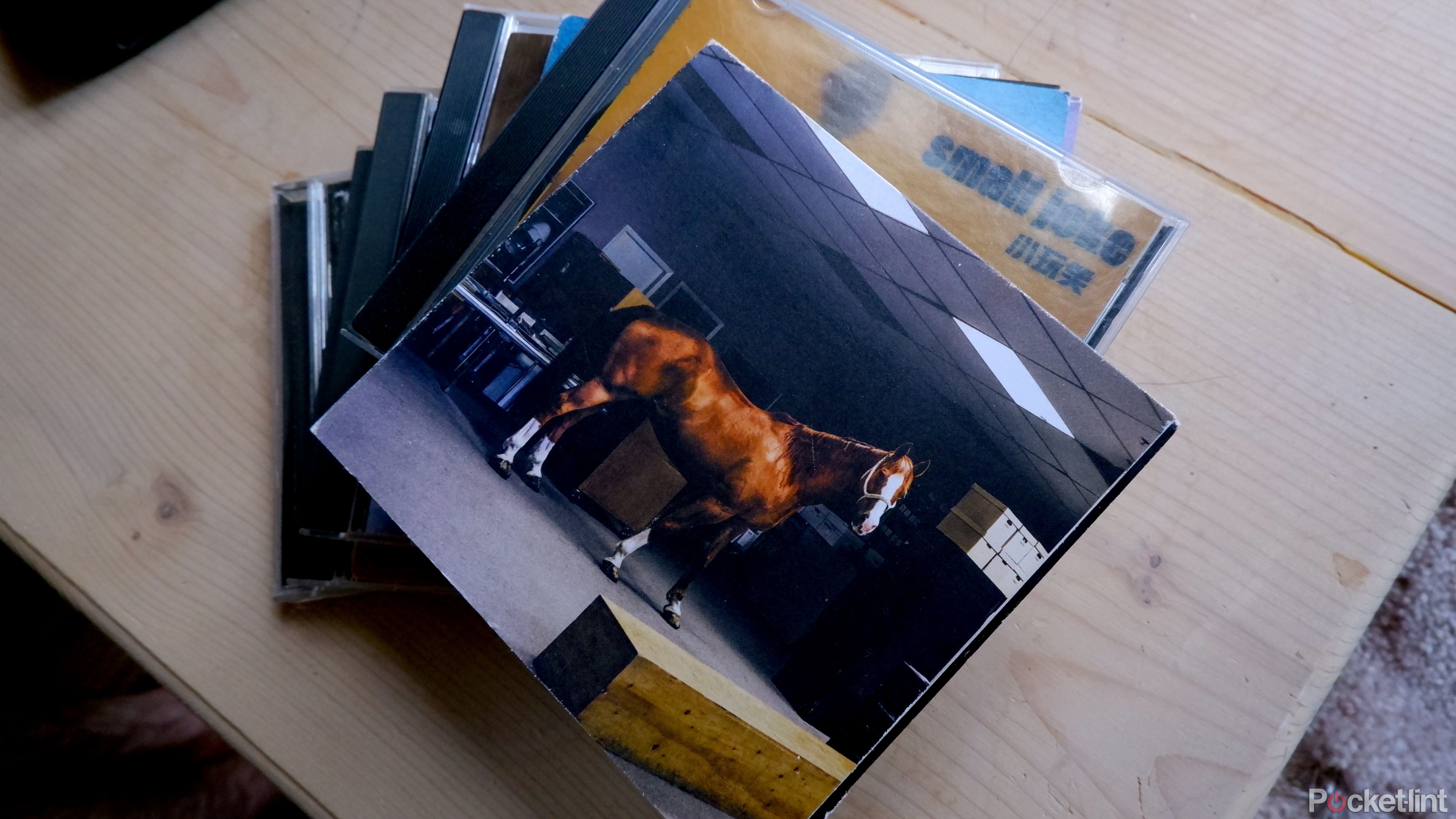Key Takeaways
- Whereas CDs can last anywhere from 20 to 100 years, vinyl should last up to 100 under the right conditions.
- Vinyl is more delicate and requires special care.
- Choose vinyl if you want a cool artifact that you can listen to occasionally.
While lossless digital files are the way to go if you care about maximum quality, a lot of us still have CD and vinyl libraries. Some people are buying new albums this way, too, whether because they prefer physical ownership or just enjoy excellent artwork. Some collectors shell out for new turntables and speakers to achieve audio bliss.
If there’s one major downside to CDs and vinyl however, it’s longevity — you may have to buy (or make) an extra copy of an album at some point if you want it to last your entire life. Which medium should you choose if lifespan is the biggest factor?
CDs vs vinyl
The ideal lifespan
In terms of projected durability, vinyl wins. A 2003 estimate puts the lifespan of vinyl records at 100 years, assuming reasonable usage and storage. There will be more to say about that in the next section, but 100 years does seem achievable on paper, given that my family still owns fragile shellac discs from before 1912. We won’t know about vinyl for sure until 2030, since the first vinyl LPs were released in 1930.
In terms of projected durability, vinyl wins.
While that 2003 estimate puts the lifespan of CDs at around 30 years — less time than the medium has even been around — the Canadian Conservation Institute notes that longevity depends on the particular version of the technology. Read-only audio CDs may hold out for 50 to 100 years, and CD-Rs with phthalocyanine dye and gold metal could last over a century. Other CD-R formats, such as CD-RWs, are forecast to last between 20 and 50 years. With numbers like this, it’s clear there area a lot of variables, and we also won’t really know for a while, since CDs have been around for even less time than vinyl. But if mine and my parents’ CDs are any indication, having accumulated a lot of them since the 1990s, a ton of them have made it to 30 years old, and will likely continue to be usable for a while longer.
CDs vs vinyl: Real-world lifespan
Now for the reality check
In practice, vinyl records can become unlistenable well before CDs. It’s inherent to the medium — turntables use needles, so a record that’s on frequent rotation will develop more and more damage until it’s not worth listening to anymore. Being laser-based, CDs often sound just as good the 500th time you play them as the first.
Vinyl also tends to be more sensitive to heat and humidity, which can warp a record if you’re not careful. A dehumidifier is a must if you’re living somewhere humid like Florida or Louisiana. In fact, a humid environment may further affect the static charge of a record, filling its grooves with dust if it’s sitting around for long stretches of time. In rare scenarios, your records could fall prey to “vinyl rot,” i.e. a mold infestation.
Just one deep scratch can render a CD unreadable.
CDs have their own vulnerabilities, of course, such as scratches and cracking. It’s also possible to scratch and crack vinyl, but since CDs are meant to be portable, they’re often exposed to threats more frequently. Just one deep scratch can render a CD unreadable, and lighter ones may trigger high-pitched “blips” that hurt your ears.
Lastly, CDs are susceptible to a phenomenon called “disc rot,” though it’s very different from vinyl rot. It’s caused by chemical deterioration, say by aluminum oxidation or long-term exposure to UV rays. That’s why CDs with gold reflective layers last so long — they’re less vulnerable to chemical corrosion.
Which one should you choose?
A true audiophile dilemma
Buying now, you’re probably better off with vinyl. Few people listen to physical media enough to do serious damage, so you might as well go for the long-term reliability of vinyl, not to mention its “warm” sound and visual appeal. Vinyl sleeves are popular as wall art — CD liners aren’t. Some people do put CDs on their walls, but vinyl looks even better if you don’t care about playing the music.
That said, there’s extra thought and care involved in maintaining a vinyl collection, which isn’t for everyone. Indeed, you might not want to bother with preservation period if you’re not planning to hand albums down to your kid. Ask yourself — are you really expecting to listen to that Rush or Taylor Swift record 20 years from now? 50 years? By then we might be pumping whole catalogs of music into our brains, never mind fishing a dusty pop record out of a box.
Buying now, you’re probably better off with vinyl.
Go with CDs only if you have a particular fascination with them and/or you plan to listen to them often. For heavy use, CDs are certainly more durable. This is the option for people who don’t enjoy streaming music so much, and prefer to keep it offline.
How to care for your CDs and vinyl records
It doesn’t take a lot, just a bit of awareness and caution
If you’re a collector of either of these physical media, care is key to their longevity. Even considering average lifespans, with poor preservation and a lack of care, you can destroy a CD or a record in an instant. If you want to make sure they last a long time, you need to know how to avoid damage and keep them in top shape.
Caring for vinyl starts with good storage. Keep records in their dust sleeves and record jackets to make sure dust doesn’t settle into the grooves, so that records don’t come into contact with surfaces and objects that damage them, and that when moving records around they don’t just fall out. Keeping humidity in check is also important, since mold can grow in between the grooves, causing extensive issues. I personally keep all my records in their original sleeves and jackets and have them in a shelving unit with good airflow on either side. I also try to keep my apartment at a reasonable humidity level. This can be hard if you live in a humid area like me, but keeping your home’s humidity around 50% is a good goal. Getting a cheap hygrometer to keep near your records is a solid way to keep track of this.
Caring for CDs can be a little easier since they’re fairly durable in comparison to records, and small scratches won’t affect them as much as they would on vinyl. It’s nevertheless important to keep them from getting scratched as much as possible. Keeping CDs in plastic cases like the ones they come in is the best way to protect them, since they provide a lot of protection for the outside of the CD. Being careful when taking out the CD, placing it in a CD drive, and placing it back in the case is important too, since these are the times they can sustain some damage. Don’t leave your CDs lying around on a desk or a table, always put them away when you’re done with them.
Trending Products

Cooler Master MasterBox Q300L Micro-ATX Tower with Magnetic Design Dust Filter, Transparent Acrylic Side Panel…

ASUS TUF Gaming GT301 ZAKU II Edition ATX mid-Tower Compact case with Tempered Glass Side Panel, Honeycomb Front Panel…

ASUS TUF Gaming GT501 Mid-Tower Computer Case for up to EATX Motherboards with USB 3.0 Front Panel Cases GT501/GRY/WITH…

be quiet! Pure Base 500DX Black, Mid Tower ATX case, ARGB, 3 pre-installed Pure Wings 2, BGW37, tempered glass window

ASUS ROG Strix Helios GX601 White Edition RGB Mid-Tower Computer Case for ATX/EATX Motherboards with tempered glass…











